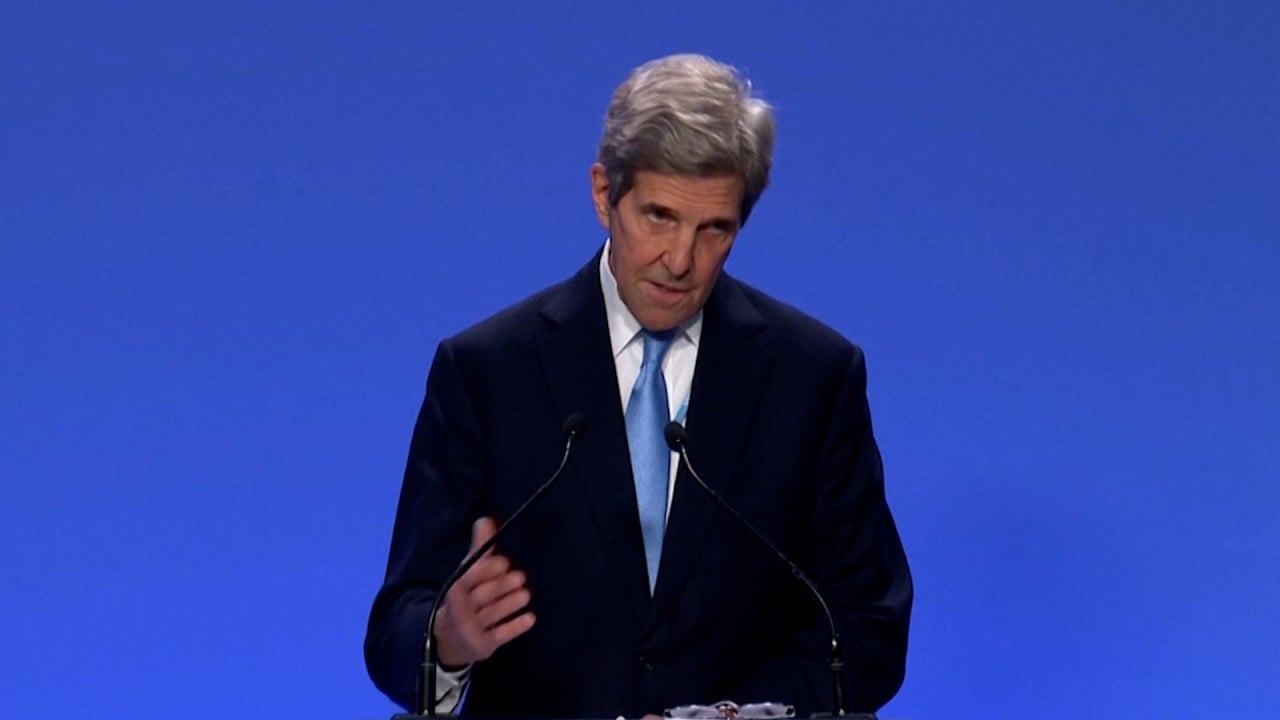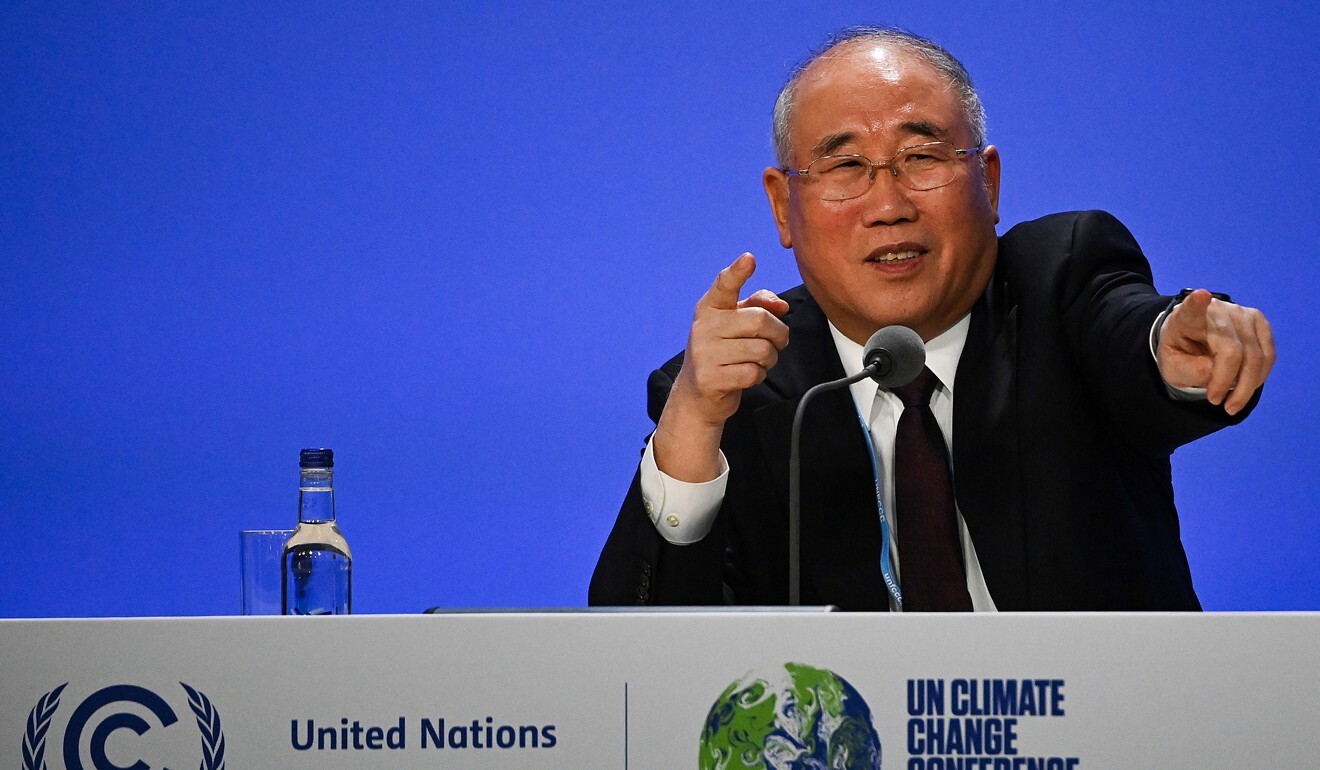
COP26 president Alok Sharma calls on nations’ ‘can do spirit’ to get climate agreement ‘over the line’
- EU climate policy chief Frans Timmermans urges we ‘turn page’ on coal
- ‘If we fail my grandson will fight with other human beings for water and food’
“We have made a lot of progress,” Sharma told the summit in Glasgow on Friday, the last scheduled day of the two-week conference, adding that there had been some movement on climate finance.
“Now we need that final injection of that can-do spirit which is present at this COP so we get this shared endeavour over the line.”

EU climate policy chief Frans Timmermans told the summit it should send a clear signal by halting fossil fuel subsidies. “The COP must also send a clear signal about our commitment to halt fossil fuel subsidies and finally turn the page on coal,” he said.
“We need to make sure major emitters reduce their emissions so we keep 1.5 alive. That needs to be at the heart of our conclusions today,” he added, to applause from the hall.

He said clinching an agreement is a “personal” issue for negotiators because it will affect the lives of their children and grandchildren. He said he had received a picture of his one-year-old grandson that day.
“If we succeed, he’ll be living in a world that’s liveable,” Timmermans said. “If we fail, and I mean fail now in the next couple of years, he will fight with other human beings for water and food. That’s the stark reality we face.”
A new draft COP26 statement on Friday, the final day of scheduled talks, called on nations to ease reliance on fossil fuels and boost funding to help vulnerable countries face the climate crisis.
“We’ll get there. We are not there yet,” US climate envoy John Kerry told reporters on his way into last-ditch meetings.

The latest draft, negotiated overnight, now “requests” countries to come back with better climate-action plans for 2030 by next year, instead of being “urged” to. It also allows for “different national circumstances,” which is seen as a kind of get-out clause.
But in positive news for developing countries, there’s a call for rich nations to double the amount of money they spend helping poor nations adapt to climate change. So far, they have failed to meet the goal of US$100 billion a year in climate finance that they set in 2009.

02:29
China and US unveil deal to cooperate on cutting emissions, phasing out coal and protecting forests
China could end up in opposition to efforts at the talks to phase out coal worldwide and urge countries to strengthen their emissions plans as soon as next year.
Energy security concerns may keep China from supporting the coal proposal, according to a person familiar with China’s position who asked not to be named. While it plans to peak emissions by 2030, the country is in the grips of an energy crisis and is ramping up coal output to record levels.

The conference set out with a core aim: to keep alive the 2015 Paris Agreement’s aspirational target to cap global warming at 1.5 degrees Celsius (2.7 Fahrenheit) above pre-industrial levels, and so avoid the worst impacts of climate change.

Under current national pledges to cut emissions this decade, researchers say the world’s temperature would soar far beyond that limit, unleashing catastrophic sea level rises, droughts, storms, floods and wildfires.
While there was little hope that new promises to bridge that gap would appear in the final day of talks, negotiators were attempting to set new requirements to raise pledges in future, hopefully fast enough to keep the 1.5C goal within reach.
US and China issue surprise statement pledging increased climate collaboration
The new draft is a balancing act, trying to take in the demands of both climate-vulnerable nations and large economies reliant on fossil fuels.
Looking to 2022
The retention of a pledge for countries to upgrade their climate targets in 2022 will be welcomed by poorer nations that want more action to tackle worsening floods and wildfires and rising sea levels.
But it was couched in weaker language than a previous text and failed to offer the rolling annual review that some developing countries have pushed for, but Washington in particular opposed.
Deciphering China’s relationship with coal as it aims for carbon neutrality
Countries are currently required to revisit, and preferably raise, their pledges every five years.
The document does still spell out that the world needs to cut greenhouse gas emissions by 45% from 2010 levels by 2030 and to net zero by 2050 to cap global warming at 1.5C, setting the benchmark that future climate pledges will be measured against.

“This is a stronger and more balanced text than what we had two days ago,” said Helen Mountford of the World Resources Institute. “We need to see what stands, what holds and how it looks in the end but at the moment it’s looking in a positive direction.”
At COP26, China doesn’t want solutions held up by target negotiation
Vanessa Perez-Cirera from the World Wide Fund for Nature bemoaned the weakening of pledges to phase out fossil fuels, but was pleased they still figured in the text.
She said the call for new climate pledges by 2022 “must be matched with short-term action, for example, by agreeing to phase out the trillions being spent on subsidising fossil fuels annually”.
